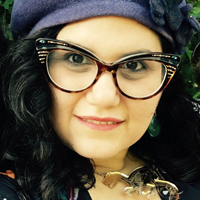Stacey is a co-designer, design researcher and educator whose practise is grounded in breaking down hierarchies between designers, institutions and users. Her research actively inquires into how co-design can engage publics to speculatively explore their own mortality and legacy, particularly in relation to how technology and design shift our understanding of death and bereavement.
As a Lecturer in Design at the University of Greenwich, with eight years’ experience in design education she is acutely aware of the challenges facing young designers and their desire to be involved in shaping the world around them. She is passionate about people’s role in design as both users and makers, engaging with publics to explore how they can enrich the systems that they exist within.
Since 2010 she has brought together academics, industry leaders, activists and technologists in the death sector, as one of the founding members of the Digital Death Day events whose discussions expanded through an open mailing group to a community of over 200 members. The Digital Death group has successfully lobbied for a change in the legal status of Digital Assets in the USA and been consulted by tech companies, such as Google, when developing new digital legacy tools.
In 2012, she was approached by the Hospice of St. Francis to develop new creative approaches to bereavement care – artistic collaborations that reflected on a person’s physical and digital legacy. This provided the hospice with new insights into the role of public-facing artistic practises, developing upon the hospices own compassionate communities’ strategy. It also aimed to familiarise the hospice’s bereavement team with the concept of Digital Legacies and introduce a basic training session that would help them to advise their existing clients.
Through a mix of ethnography, cultural probes and participatory design methods, she has collaborated with hospices, festivals, libraries and galleries to curate and design a range of interactive events aimed at specific communities e.g. tech innovators, educators and bereaved family members. As a public advocate for designing human-centred technologies with death in mind, she has written broadly on the topic of death and digitality, exploring what it means to design death for the 21st century.
www.digitaldeath.eu
@RestInPixels

